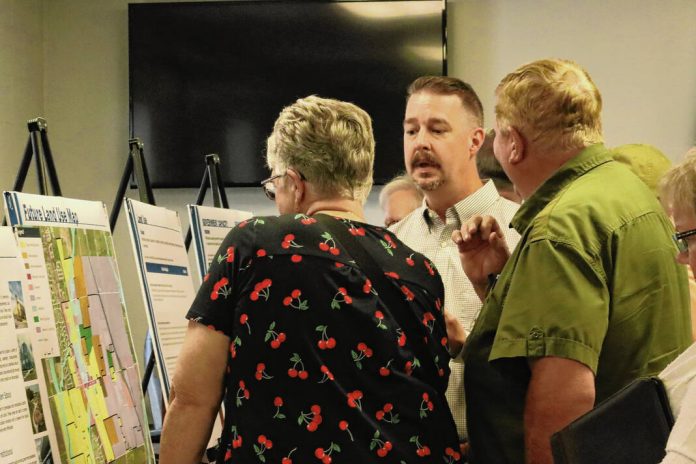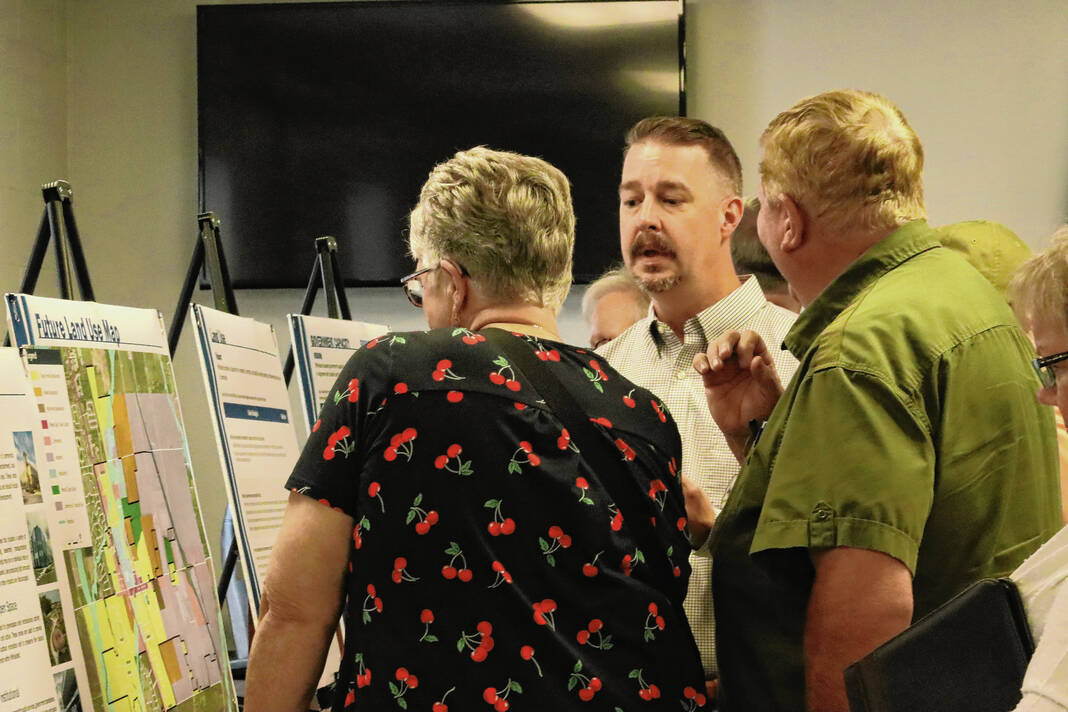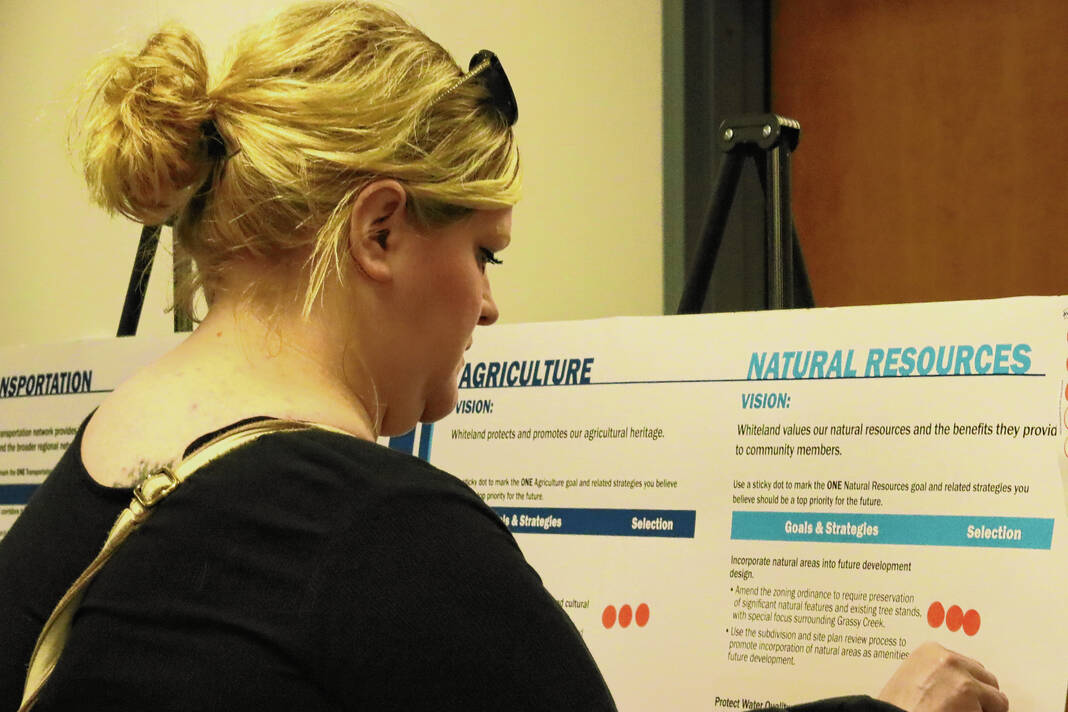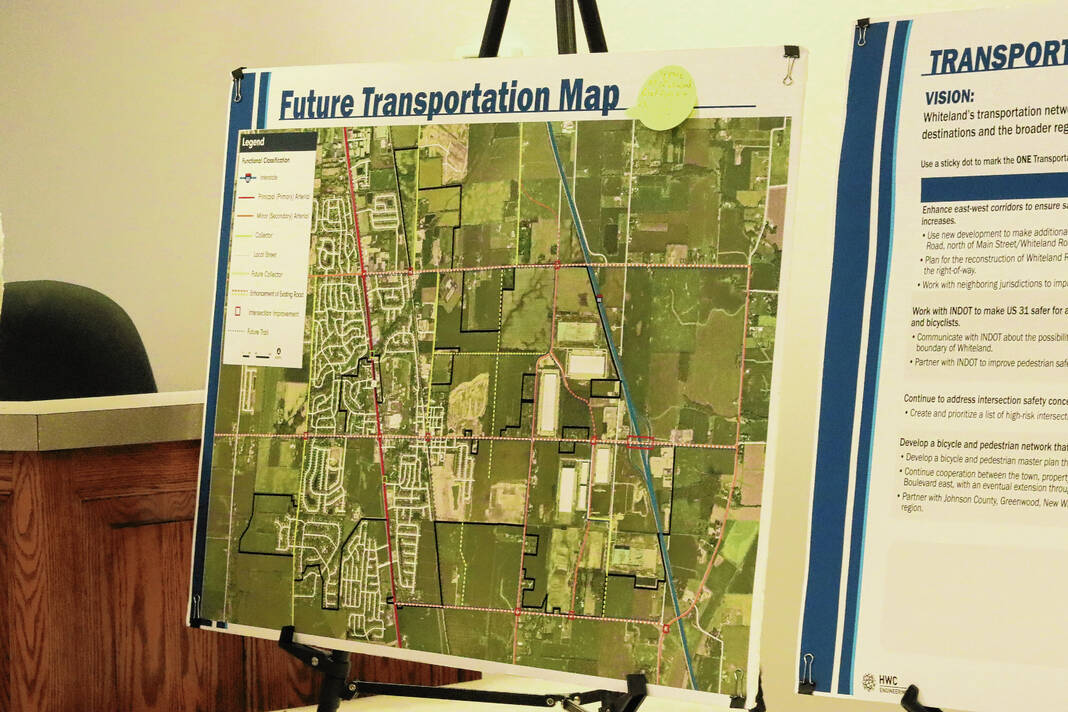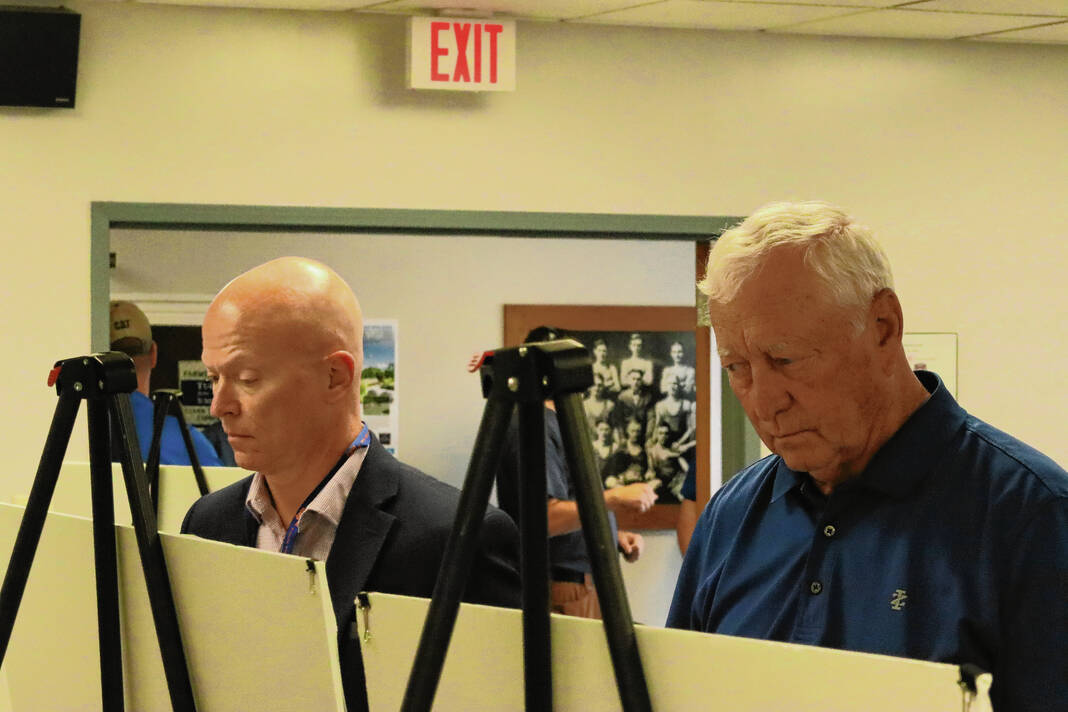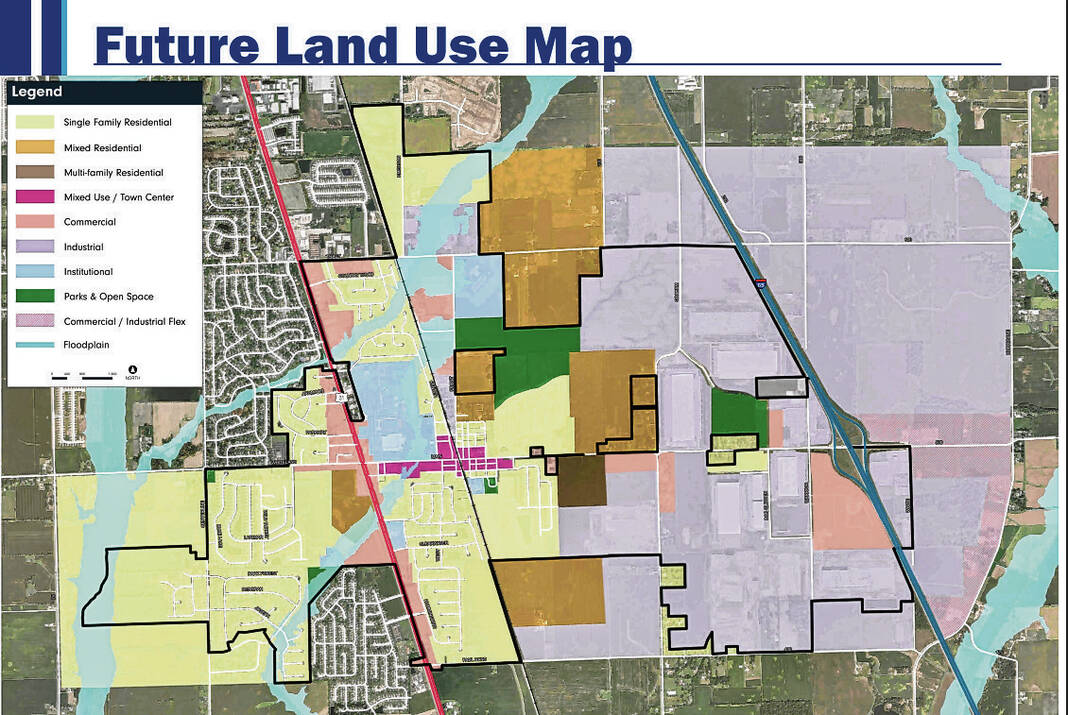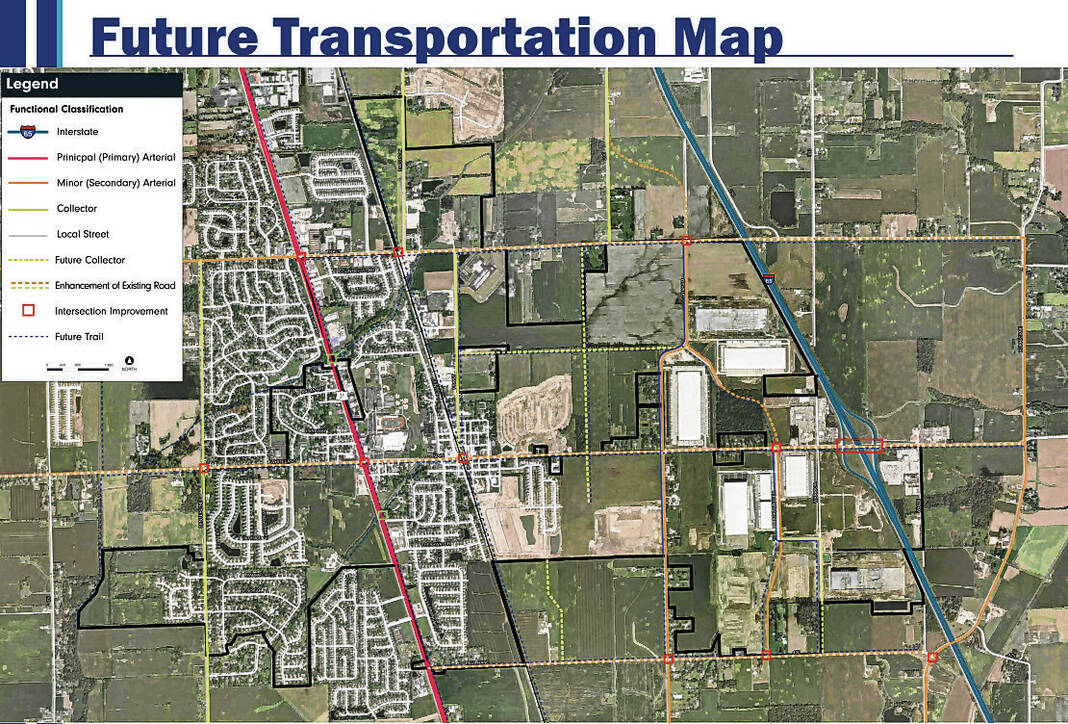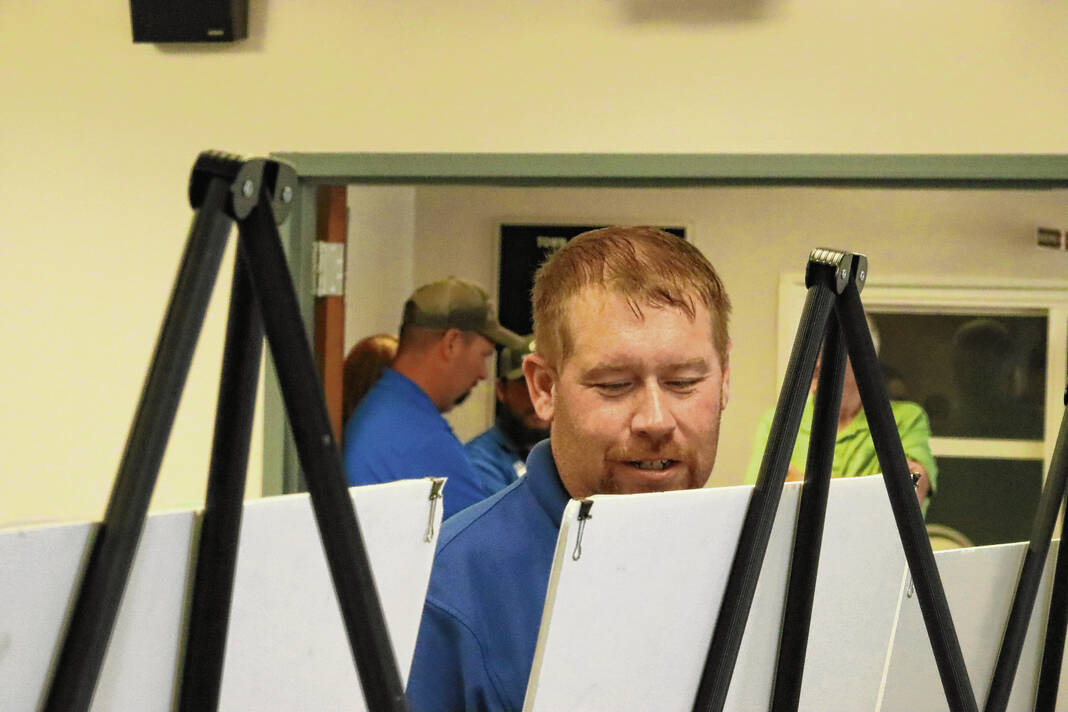As Whiteland’s new comprehensive plan heads toward a public draft, residents gave more feedback on the town’s future Thursday.
The town of Whiteland hosted a Big Ideas Open House for its new comprehensive plan Thursday at town hall. Town officials and plan developers from HWC answered questions and heard feedback from residents on different ideas and objectives developers had brainstormed during previous community conversations on the plan.
The comprehensive plan is a document that helps describe the town’s vision for the future and is used to guide local leaders with decisions, according to HWC. The planning process started in April and will be in the adoption phase by December.
Approximately a dozen people attended the open house and were asked to choose between two to three different goals for different categories that will be included in the plan. The topics were broadband access, hazard mitigation, natural resources, agriculture, transportation, housing, historic resources, parks and recreation, public facilities and services, placemaking, economic development, government capacity and land use.
As the town develops over the next decade, residents were asked to share their thoughts on ways the town could guide growth while also staying true to its current character. Placemaking was also part of the discussion and a priority for residents Derek and Jessica Westfall, who have lived in Whiteland for approximately a year and a half.
“I want people to see Whiteland (as a cool place),” Derek Westfall said. “When they hear that we live in Whiteland, like they’re jealous because they’re like, ‘Man, that’s like a cool town, up and coming, and all the stuff that you guys got going on.”
For placemaking, plan developers believe Whiteland has a strong identity and wants to promote a high quality of life for residents. Although residents placed their stickers on multiple suggestions from plan developers on the poster board, one standout was for Whiteland to promote arts and culture hubs through developing public spaces.
The Westfalls liked the direction plan developers are heading with the new comprehensive plan, they said, and were proponents of ideas like getting new shops, preserving buildings and building trails.
However, Jessica Westfall said she didn’t want too much development and would like to see the town retain its farmland. That balance was on plan developers’ minds as well, as they crafted a vision of maintaining a balanced mix of residential, commercial and industrial uses while preserving the small town character and sense of community in Whiteland, the poster boards displayed at the meeting show.
During the event, developers displayed a future land use map that showcased different possible uses for the land, the majority being single-family residential and commercial/industrial flex spaces. There were also mixed residential, multifamily residential, parks and open space, institutional and commercial uses with a small area of a mixed-use/town center. The idea to create an active town center along Main Street was supported by residents, according to stickers on the poster board.
For housing and economic development, developers wanted Whiteland to have diverse and attainable housing for all life stages and become a business-friendly community that supports local entrepreneurs and larger enterprises.
To do this, they offered ideas like attracting retail, restaurants and entertainment businesses that serve residents including improving access to fresh food. Although plan developers had the idea of diverse and attainable housing options, residents prioritized enhancing established neighborhoods through beautification efforts and sidewalk improvements instead.
Residents also would like to see enhancement of the town’s east-west corridors to ensure safety and accommodate increased traffic as population and jobs increase, alongside developing a bike and pedestrian network.
Daylanne Sheehan, a nine-year resident, said she wants to see a definitive plan for a safe pedestrian crossing near the high school across U.S. 31 and was also curious how tornado recovery would impact some of the ideas for the new comprehensive plan. She said she was happy to see interest in creating a park space and how ideas from the workshop in June were condensed. She thought suggestions from plan developers at the open house were a good start.
“I am very excited to see (park space) and the rest of this, I think certainly looks like they’re on the right track. I like the ideas of the beautification projects on Main Street,” Sheehan said. “I am (happy). overall I’m very happy.”
For natural resources and agriculture, residents liked the idea of incorporating natural areas in future development design, protecting water quality and promoting urban green spaces in parks and other town properties. Residents want the town to acknowledge and preserve the historical and cultural impact of agriculture in Whiteland and encourage small-scale community gardening in residential areas and as part of future park improvements, including creating a community garden.
They also liked the suggestion of increasing the amount of active and passive park space available in the town, including establishing a parks board, creating a parks and trails master plan and improving town properties.
According to feedback during the open house, residents also want a central community gathering space for events and recreation programs. As a larger vision, plan developers want Whiteland to meet the needs of current residents and businesses and help attract desired growth in the future, the poster boards show.
Sue Schreiner, a resident, said she has always wondered why Whiteland doesn’t have a recreation center or civic center. She and her husband Doug Schreiner have been residents since 1984 and want to see downtown built up and updated facilities and infrastructure.
“This a long time needed,” Doug Schreiner said. “Everybody else is growing around us, but their (Whiteland)’s staying small.”
The public draft of the new comprehensive plan will be available at the beginning of October. There will be a 60-day review period for the Indiana Office of Community & Rural Affairs, or OCRA, and residents prior to the plan heading to the plan commission and town council. The plan is slated to be adopted in December.


